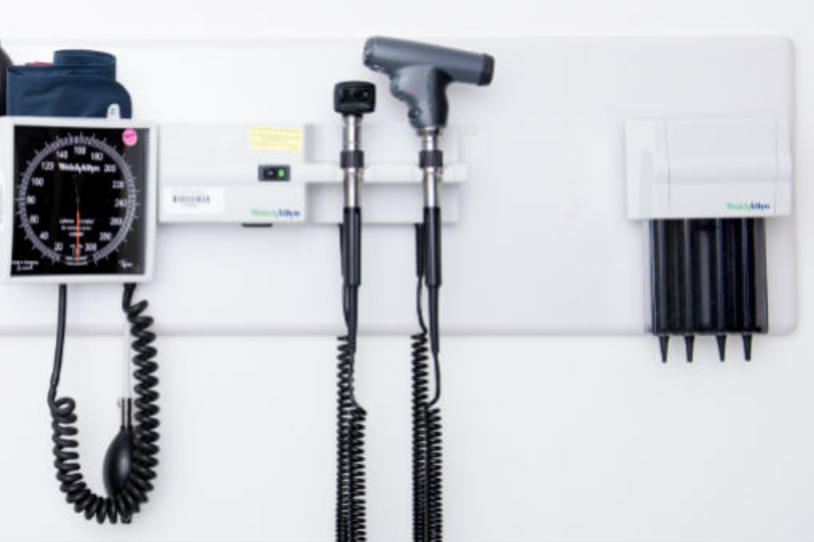
This week MJFF-funded biotech Neuropore Therapies announced the start of its Phase I trial of NPT200-11, a compound that binds to the protein alpha-synuclein to reduce its toxicity. Another company, Biogen, recently began a Phase I trial of its antibody against alpha-synuclein.
These developments are important milestones in our pursuit of a drug that can slow or stop Parkinson’s progression.
Both studies currently are enrolling only people without Parkinson’s disease (PD), the first step to show safety before testing in people with PD.
Preventing Toxic Protein Clumps
Alpha-synuclein is the sticky protein that clumps in brain cells in Parkinson’s, and scientists believe that those clumps (called Lewy bodies) are toxic and lead to cell death. Because Lewy bodies likely play a primary role in disease progression and are seen in the brains of all people with PD, alpha-synuclein is our most promising target for a drug to stop or slow Parkinson’s disease.
Researchers are taking varied approaches to prevent, break up or clear out Lewy bodies.
With MJFF funding, Neuropore has developed a drug compound that takes a prevention approach. NPT200-11 binds to alpha-synuclein and blocks its accumulation. Positive early results led to collaboration with pharmaceutical company UCB to further develop NPT200-11.
Douglas W. Bonhaus, PhD, Neuropore chief operating officer, acknowledged the integral role MJFF played in advancing this disease-modifying therapy to the clinic: “Neuropore Therapies is happy to acknowledge the financial support that we received from The Michael J. Fox Foundation that has helped us to identify and evaluate NPT200-11 as a potential new therapeutic for PD and related disorders.”
The company has recruited a small number of people without PD to test its compound at a clinic site in Phoenix. If the results are positive and testing in people with PD moves forward, Neuropore will post its study on Fox Trial Finder.
Clearing Out Toxic Alpha-synuclein to Protect Cells
In its ongoing Phase I trial, Biogen is testing an antibody (much like those the immune system manufactures to fight viruses and bacteria) designed to bind to alpha-synculein. In March the company announced early results from a trial of a similar therapy against the protein that clumps in Alzheimer’s disease, amyloid-beta.
In the Parkinson’s trial, researchers are testing that BIIB-054 is safe and tolerable and are measuring levels of alpha-synuclein in spinal fluid. While scientists are not yet able to analyze levels of alpha-synuclein levels in the brain, they believe that protein levels in spinal fluid are a secondary source that will help them understand what is happening in the brain.
The BIIB-054 study is recruiting participants without PD at sites in Dallas and Evansville, Indiana. Learn more on Fox Trial Finder.
Growing the Pipeline of Potential Therapies
These trials join two already in progress: Biotech Prothena is testing a different antibody in people with Parkinson’s after positive safety results in people without the disease. MJFF-funded AFFiRiS is inducing a natural immune response against alpha-synuclein (similar to how the flu vaccine works). The company is currently planning a Phase II trial in people with PD.
“We’re very glad to see this momentum in drug development around our primary target,” said Kuldip Dave, PhD, MJFF director of research programs who leads the Foundation’s alpha-synuclein portfolio. “There is much work ahead, but the transition to clinical testing is monumental. Multiple companies in this space increases our likelihood of success.”
Drug Development Advances Highlight Biomarker Need
As more compounds advance into clinical testing, so grows the need for a biological marker to test the drugs’ impact on the disease process. Currently Parkinson’s is diagnosed and monitored through a clinician’s observation of symptoms. New drugs are evaluated similarly: do people who take the drug progress slower than people who do not take the drug?
A biomarker would allow researchers to select study participants with definitive Parkinson’s disease (rather than parkinsonism without Lewy bodies, for example). This means that they have the targets to go after in the first place. Such confidence in the study population would allow investigators to enroll fewer patients, keeping costs and time down.
Scientists could also evaluate the drug’s impact on the disease process itself (rather than on symptoms) and do so much more quickly than current trials can today. A PD biomarker would significantly reduce the time and cost of clinical testing, speeding the development of drugs that may slow or stop Parkinson’s.
MJFF recognizes biomarker research as an important addition to the field. The Foundation-led Parkinson’s Progression Markers Initiative (PPMI) marks its fifth anniversary later this year. PPMI is collecting data and biosamples from nearly 1,000 volunteers with and without Parkinson’s and with known PD risk factors in its effort to identify and validate a Parkinson’s biomarker.
